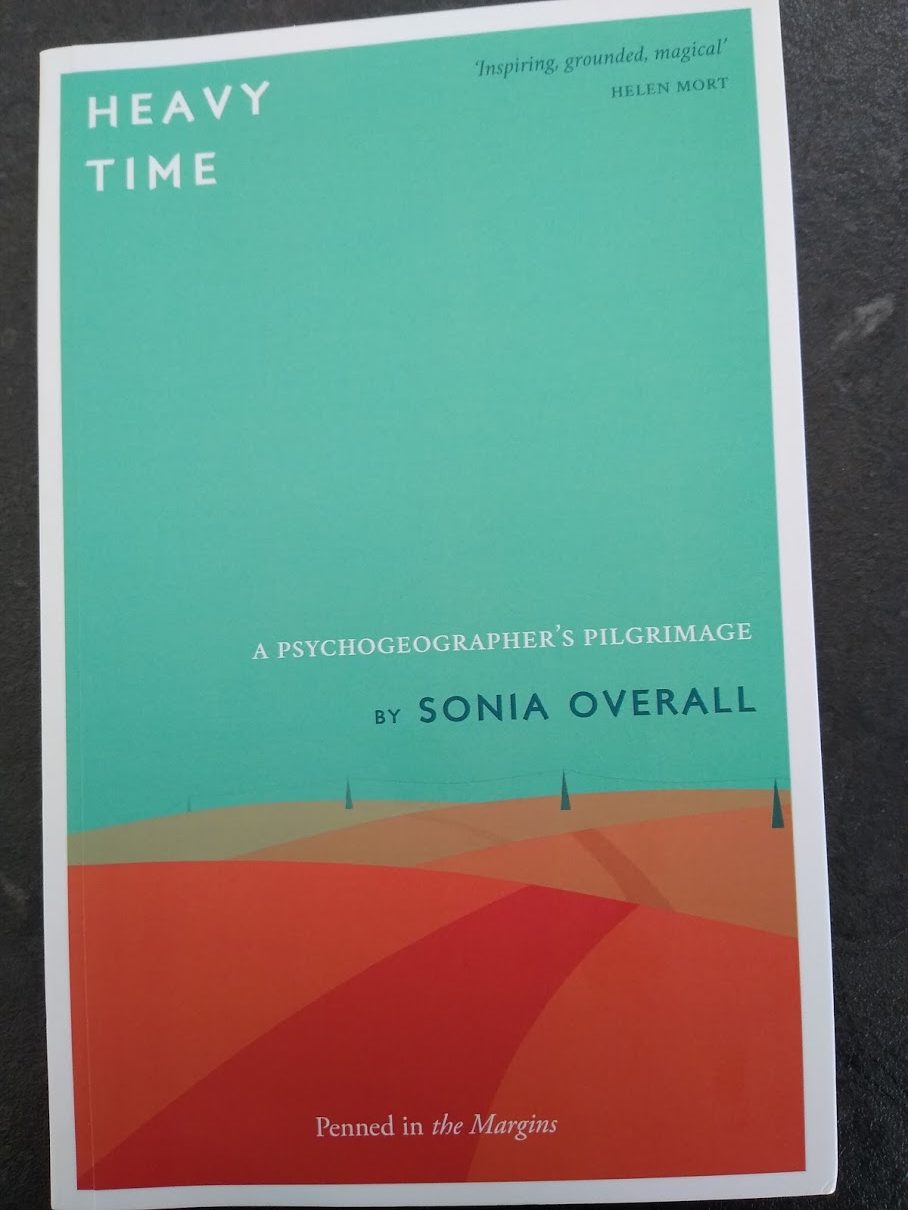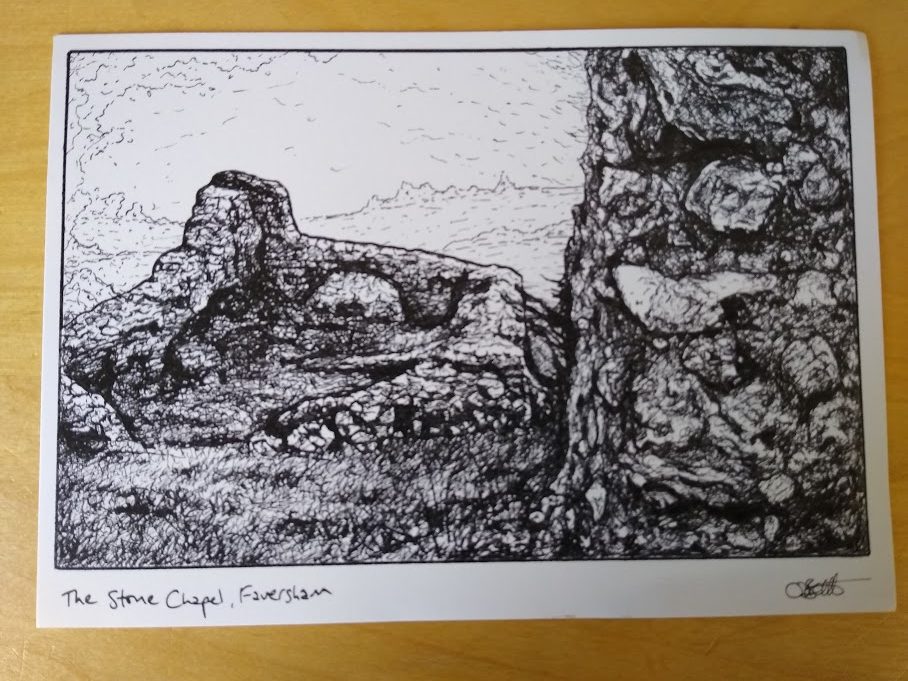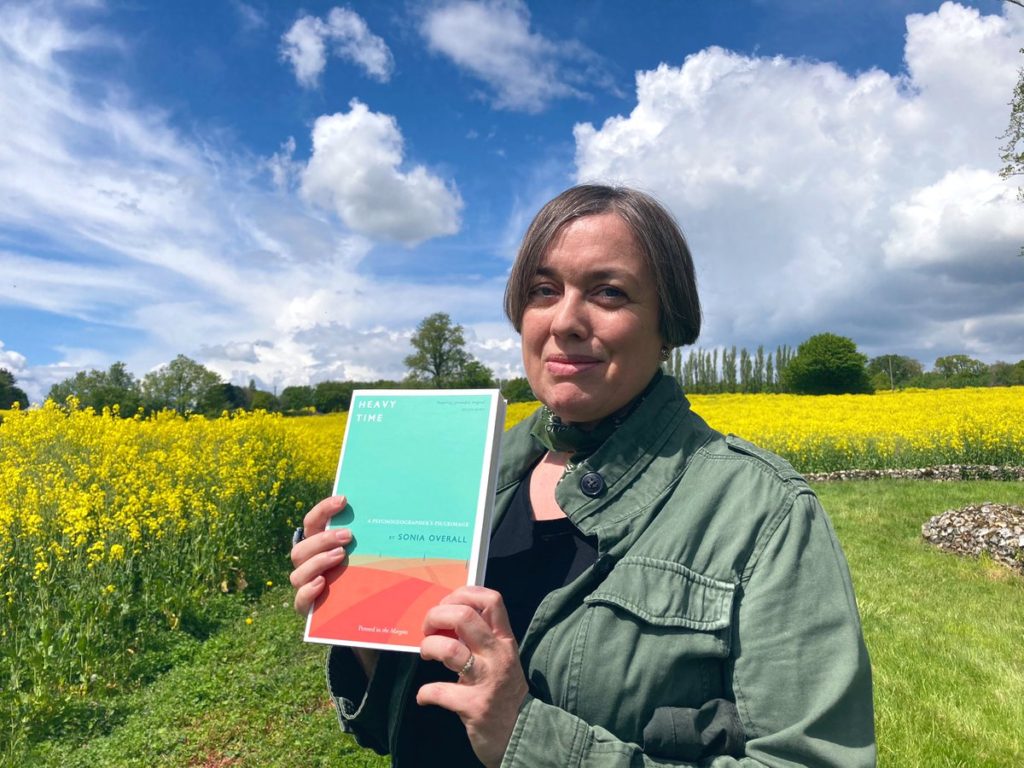Book Review – July 2021
Sonia Overall was born and brought up in Ely, a cathedral city on a rocky island in England’s damp, black-soiled Fen country. A constant presence in her childhood was the river which flowed through the city and her mind was regularly filled with thoughts of the places it might lead to and of the endless possibilities those destinations promised. In this flat land, Overall recalls, the horizon was always in sight and the landscape flowed to the very edges of her vision and, in her imagination, to places beyond even that. One trip beyond that horizon was made in her early teens and it lodged permanently in her memory. She was taken on an outing to Walsingham in Norfolk. Since Anglo-Saxon times the village has been a place of pilgrimage for visitors to the Basilica of Our Lady of Walsingham and a number of other sites in and around the village.
Overall’s time at university and her adult life has been spent in and around Canterbury in Kent. Canterbury, of course, has long been a place of pilgrimage for believers wishing to visit the shrine of Thomas Becket. Having been brought up under the shadow of Ely cathedral, then carrying with her the fond youthful memory of that trip to Walsingham and more recently living in Canterbury, it is perhaps not surprising that Sonia Overall developed a fascination for the idea of a pilgrimage. From this interest the idea of making her own pilgrimage, the journey chronicled in Heavy Time, was born. But it was not to be a traditional pilgrimage seeking ‘miracles’; Overall was instead looking for ‘the everyday divine, the gods of hedgerows and laybys’. She was, she declared, ‘on the psychogeographical scent, a hunter of spirits of place.’
Her plan was to take the old pilgrims’ way from Canterbury to Southwark cathedral, reversing the route followed by Chaucer’s travellers. From London she planned to walk to Ely: a journey back into her childhood. From here her walk would continue to Walsingham, a place with particular significance for Overall and the destination of many a medieval pilgrim.
Heavy Time draws the reader in to join Sonia Overall on her pilgrimage by narrating the introduction in a second person point of view format, before switching to first person for the rest of the story. The book has the immediacy of a notebook completed on a journey, with marginal notes clocking up progress and beautiful little pen and ink miniatures by Oliver Barrett punctuating the text.



For Overall psychogeography is about being at one with the landscape, about noticing its small details and homing in on discarded objects: a feather, a leaf, a mangled coin, a bingo card. She observes all the minute details of route she follows: the wildflowers, insects, leaves and human litter. Each has its place in the landscape, each its own story to tell.
Sonia Overall reflects on the male perspective of much psychogeographic writing and recounts the difficulties men impose on women who simply wish to walk unhindered. As a lone woman out walking Overall regularly had to endure stares, leers and innuendo from passing males. Her very presence seemed to pose a threat to a certain type of toxic masculinity.
Heavy Time does not present pilgrimage in terms of any particular religious perspective, but Overall readily embraces the concept of the spiritual journey. She immerses herself in the contemplative silence of travelling alone on foot for days at a stretch, hoping it will seep into her consciousness. In doing so she notices a heightened awareness of the ‘thin’ places she encounters and begins to tune in to the echoes of other lives lingering in the landscape. Not all of these places seem to a have a benign atmosphere though, and Overall turns back from visiting one particular ruined chapel because of the inexplicable feelings of discomfort she experiences as she approaches it.
Overall’s writing successfully places the reader in the landscape with her; she evokes its physicality. We feel her blisters, her muscular aches and the sweat and grime of the road. And it certainly does not help progress that the first part of her walk takes place in an unaccustomed English heatwave.
At Waltham Abbey, near the start of the second part of Overall’s pilgrim journey, she experiences a hint of spiritual insight shining through the veil of everyday existence. She feels blessed and encouraged and sets out to continue her journey northwards. But, very soon, things begin to go wrong and she ends up in A and E in Harlow and the completion of her whole pilgrimage is threatened. Time weighs heavily.
Walking and observing, time becomes dense. There are so many layers of experience to be soaked up that the days feel huge, distended. Each hour of this time carries the same weight……… This is extreme time, heavy time. Pilgrimage time.


I don’t think I’ve come across a work of psychogeography by a woman before – definitely adding this to my wish list! I’m currently struggling a bit with Iain Sinclair’s “Overground”.
The male writers make a lot more noise, but there are lots of female psychogeographic writers out there too! Lauren Elkin’s ‘Flaneuse: Women Walk the City in Paris, New York, Tokyo, Venice and London’ is a good place to start. Also Rebecca Solnit, Jini Reddy, Melissa Harrison and Helen MacDonald.
Ah yes, I have a note of Flaneuse from a friend’s blog review and I have Jini Reddy’s book. Thank you for the list!
Pingback: Psychogeographic Review’s Books of the Year, 2022 | Psychogeographic Review